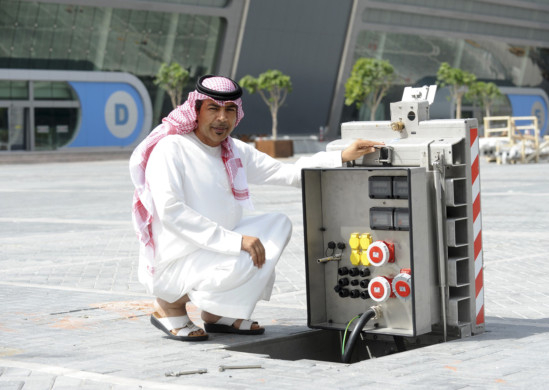
Occupational safety engineer Abdulla Al Shammari is only one example of UAE organisations recognising small to medium-sized enterprises (SMEs) as major contributors to fiscal growth, job creation and economic activity.
Soon after the Khalifa Fund for Enterprise Development was set up in 2007, Al Shammari approached the fund with a proposal to make underground street lighting boxes. “They were surprised because we were the first with this technology, but realising the potential of the business, they approved our plan,” the 45-year-old told Reuters recently. With a Dh1.8-million loan from the fund, his company, Cirta Engineering, expects to grow fourfold this year with a turnover of Dh40 million.
As realisation dawns that SME clients often provide more lucrative opportunities than giant corporations, the UAE’s banks are focusing on small business lending after the Central Bank raised restrictions on personal loans to individuals.
Enhancing SME finance
As part of efforts to assist SME growth in the country and reduce the gap between supply and demand of SME finance, the Dubai Chamber of Commerce and Industry (Dubai Chamber) issued new guidelines for enhancing SME finance in November. Its Chairman, Abdul Rahman Saif Al Ghurair, said at the event that enhancing SME access to finance would effectively ensure Dubai’s continued development as an international trading hub. “SMEs represent more than 90 per cent of Dubai businesses and they play an essential role in building a competitive private sector, and contribute significantly to employment and economic activity in Dubai and the UAE.
“Despite their integral role in Dubai’s economy, many of our SME members continue to face difficulties securing financing at sustainable rates. In fact, the UAE’s total bank lending to SMEs is around 3.85 per cent when its target is 24.3 per cent. So addressing this issue has been a primary task for the Dubai Chamber,” Al Ghurair said.
Role in economy
In his keynote address at the event, Mohammed Al Shehhi, Undersecretary, UAE Ministry of Economy, emphasised the importance of adequate financing for SMEs. He said SMEs contribute an estimated 40-46 per cent of nominal GDP in Dubai, and more than 60 per cent of the UAE’s GDP. SMEs host the majority of employment opportunities in the country and provide 86 per cent of all private sector employment.
Following a December law to establish a new fund for SMEs, the Mohammed Bin Rashid Fund will work alongside the Mohammed Bin Rashid Establishment (MBRE) for SMEs, an agency of the Dubai Department of Economic Development (DED). Although the value of the fund was not revealed, it aims to support and finance 100 projects by young entrepreneurs every year and will be mandated to give loans, provide financial guarantees and monitor the entrepreneurs it supports.
Banks to step up lending
Also in December, Emirates NBD (ENBD), Dubai’s largest bank, said it aims to double its lending to small businesses and cross the Dh1-billion mark this year. It already has a quarter of the market in SME lending and is looking at further diversification from corporate and personal finance. Suvo Sarkar, General Manager of Retail Banking at ENBD, says there are currently about 230,000 SMEs based in the UAE, and that most SME loans are in the food and beverages, travel and tourism, construction and oil field services industries. He expected their contribution to the country’s overall GDP to touch 40 per cent in 2012.
Dubai SME, another institution founded by DED, also supports SME development, and in an agreement with them, Shuaa Capital regularly presents business valuation seminars to the leading 100 SMEs in Dubai. CEO Abdul Baset Al Janahi has described these as a major opportunity for SMEs to better understand the value of their firms in preparation for investor interest. “This will help them ready themselves for listing in public markets, should they wish to take such a route to raise capital,” he said at a recent event.
A roundtable of experts hosted by advisory firm AlixPartners and Hawkamah, the Institute for Corporate Governance, examined alternative models for financing SMEs last month. Dr Nasser Saidi, Founder and Managing Director of Nasser Saidi & Associates and former Chief Economist of the DIFC, said at the event: “With 60 per cent of the region’s population under the age of 26 years and unemployment at 40 per cent, the requirement to grow the SME sector to support GDP growth and develop employment opportunities could not be more important. In the GCC, the percentage of bank loans to the SME sector as a proportion of their total loan book is approximately 2 per cent versus 15 per cent in more developed nations. This needs to be addressed as a priority and new sources of capital need to be developed.”











